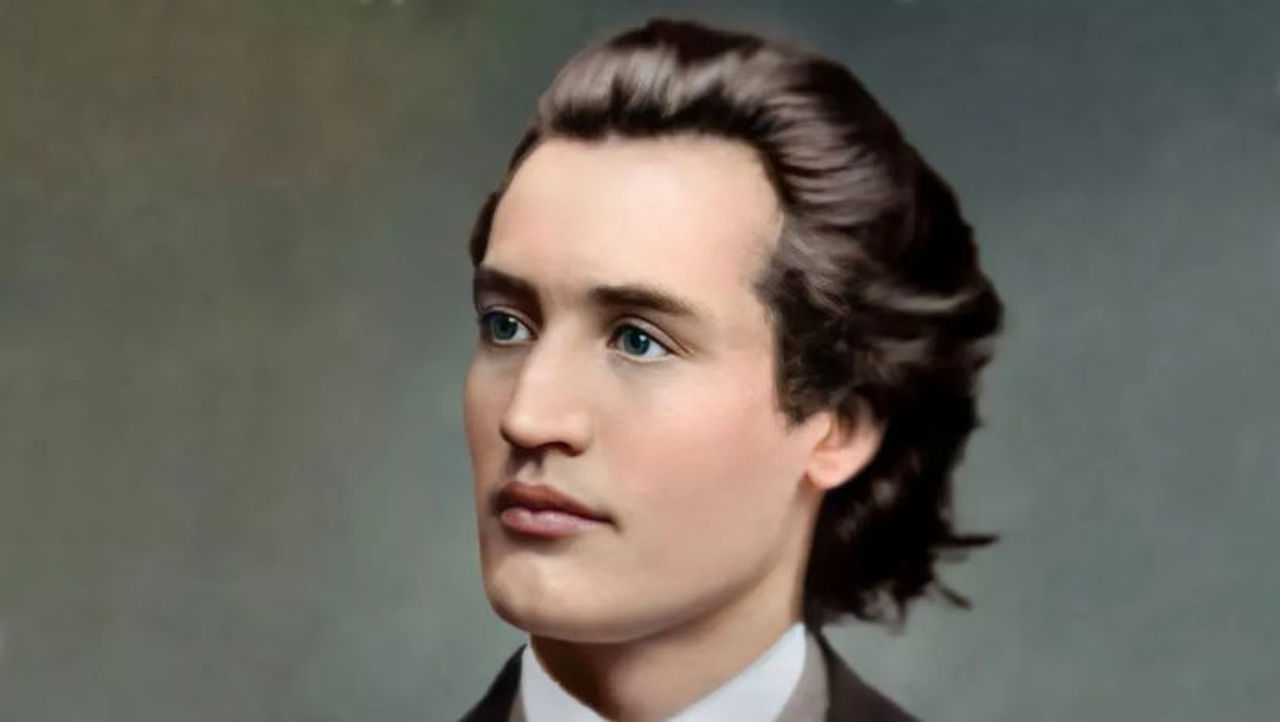January 15 - National Culture Day and the 175th anniversary of the birth of the national poet Mihai Eminescu
January 15 - National Culture Day and the 175th anniversary of the birth of the national poet Mihai Eminescu

According to the authorities, this holiday is an opportunity to honor the richness of our cultural heritage and celebrate the birthday of the great poet Mihai Eminescu, a symbol of Romanian literature and our national identity.
Thus, almost 60 events are organized by the institutions subordinate to the ministry, and over 180 others - in collaboration with local public authorities - in villages and towns across the country. The events will begin with laying flowers at Eminescu's busts - in Chisinau, on the Alley of Classical Writers, but also in several localities across the country.
Eminescu - the most important poetic voice in Romanian literature
Mihai Eminescu (born Mihail Eminovici; January 15, 1850, Botoșani - June 15, 1889, Bucharest) was a Romanian poet, prose writer and journalist, considered by Romanian readers and posthumous literary critics to be the most important poetic voice in Romanian literature.
Receptive to European romanticisms of the 18th and 19th centuries, he assimilated Western poetic visions, his creation belongs to a relatively late literary romanticism.
At the moment when Mihai Eminescu recovered the traditional themes of European Romanticism, the taste for the past and the passion for national history, for which he even wanted to build a Pantheon of voivodes, regressive nostalgia for childhood, melancholy and the cultivation of depressive states, the return to nature, etc., European poetry was discovering the paradigm of modernism, through Charles Baudelaire or Stephane Mallarme, for example.
The poet had a good philosophical education, his poetic work being influenced by the great philosophical systems of his era, by ancient philosophy, from Heraclitus to Plato, by the great systems of thought of Romanticism, by the theories of Arthur Schopenhauer, Immanuel Kant (in fact, Eminescu worked for a while on the translation of his treatise Critique of Pure Reason, at the urging of Titu Maiorescu, who had asked him to get his doctorate in Kant's philosophy at the University of Berlin, a plan that was ultimately not finalized) and by the theories of Hegel.
The main ideological root of his economic or political thinking was conservative; through his articles published especially during the period in which he worked at Timpul, he managed to disturb several important leaders of this great party who launched the slogan, famous at the time, "Stop this Eminescu!".
Eminescu's journalism offers readers an X-ray of the political, parliamentary or governmental life of that era; in addition, the journalist was also a literary or theatrical columnist when needed, writing about social life or about events of lesser importance, being a true chronicler of the moment.
Eminescu was active in the political-literary society Junimea, and worked as an editor at Timpul, the official newspaper of the Conservative Party.
He published his first poem at the age of 16, and at 19 he went to study in Vienna. The manuscripts of the poet Mihai Eminescu, 46 volumes, approximately 14,000 pages, were donated to the Romanian Academy by Titu Maiorescu, in the meeting of January 25, 1902.
Eminescu was hospitalized on February 3, 1889 at the Mărcuța Hospital in Bucharest and then he was transported to the Caritas Sanatorium.
On June 15, 1889, around 4 am, the poet died in the sanatorium of Dr. Șuțu. On June 17, Eminescu was buried in the shade of a lime tree in the Bellu Cemetery in Bucharest.
He was elected posthumously (October 28, 1948) a member of the Romanian Academy.
The year 2025 was declared "Mihai Eminescu Year", to mark 175 years since the birth of the national poet, considered a symbol of national and universal literature. Thus, during this year, the Government will approve a national program of educational and cultural-artistic actions aimed at celebrating the life and work of the great poet.




